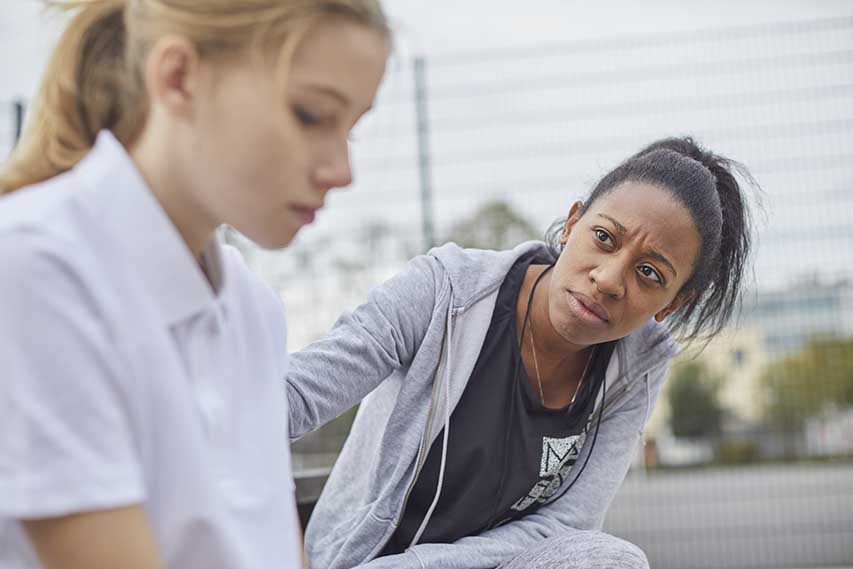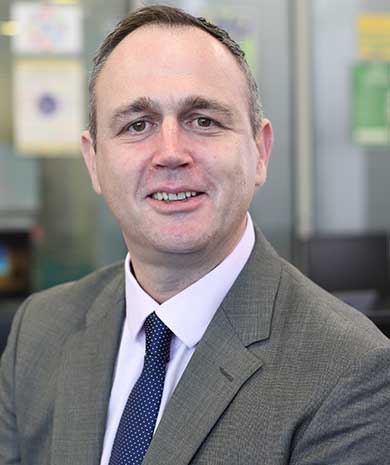Number of children in NI Childline calls about bullying doubles in a year
NSPCC data shows a 119% jump since schools have returned after lockdown.
The number of children and young people in Northern Ireland who received Childline counselling sessions about in-person bullying, has more than doubled in the past year.
According to *new data from NSPCC, 2021/22 figures have increased by 119% on those recorded for 2020/21.

While this alarming increase can be in-part linked to the end of the pandemic and pupils returning to school, it indicates that bullying remains a major problem for children and young people in Northern Ireland.
As well as in-person bullying, Childline also counsels a growing number of children who are being bullied online (cyber-bullying).
The release of the NSPCC figures coincides with this year’s Anti-Bullying Week (November 14–18).
Organised by the Northern Ireland Anti-Bullying Forum (NIABF), the theme this year is ‘Reach Out’ – Reach out to someone you trust if you need to talk. Reach out to someone you know is being bullied.

“The effects of bullying can last into adulthood,” says Karen Walker, NSPCC Northern Ireland Schools Service Manager. “At its worst, bullying has driven children and young people to self-harm and even suicide.
“It can be heart-breaking to realise that your child is being bullied and many parents and carers can feel at a loss as to what they can do to help resolve the situation, and worry that if they get involved, they may make things worse.
“However, doing nothing is never the right option.
“If you suspect that your child is being bullied, getting them to open up and talk about it can be difficult.
“They may feel scared, embarrassed or ashamed that they’re being bullied, and they may be worried about what will happen if they tell anyone.
“If your child speaks to you about an experience of bullying that they’ve had online or in person, try to remain calm and don’t overwhelm them with questions and reassure them that it will be ok, and that you’re always there for them.”
Karen added: “If you’re not sure how to start the conversation, the NSPCC website has lots of advice and tips on broaching difficult subjects.
“And if they don’t want to talk to you, suggest they have a chat with another trusted adult, such as a teacher or family member.
“You could also suggest they contact Childline, where a trained counsellor will provide a listening ear.
“They don’t have to give their name and they can talk about anything that’s worrying them.”
Whether it’s happening now or happened in the past, Childline can be contacted for free, 24/7 on: 0800 1111. Children can also have one-to-one chats with a counsellor online at:
The website has lots of advice about different types of bullying and a tool to help young people bounce back from bullying.
Parents and carers who have concerns that a young person is being bullied, or would like advice on how to help and what to do if a young person is being bullied, can contact the NSPCC’s Adult Helpline on: 0808 800 5000, email:
help@nspcc.org.uk or fill in the online form.

Shaun Friel Childline Director said: “Bullying continues to remain a top issue that children turn to Childline about on a daily basis.
“Ever since we moved out of the national lockdown and children returned to school, we have continued to see a rise in the number of contacts to Childline about in-person bullying.
“Those who have called the service about this have spoken to our trained counsellors about experiencing name calling, being excluded and physical violence.
“Whilst many others have turned to the service about being bullied online. Some of those who have contacted our counsellors about this have said that they’ve been threatened online, had rumours spread about them on social media platforms and others have had been made fun of on online chatrooms.
“Regardless of how or where a child is bullied, we know it can have a detrimental impact if they don’t get the support they need. These children can become sad, overwhelmed and lonely.
“This Anti Bullying Week, we want to remind all children and young people that if they are being bullied that this is not their fault, and they can always reach out to Childline for immediate support.
“Our counsellors are here to help and can be contacted confidentially, day or night, online or on the phone.”
Advice for Children
- Share how you are feeling with other young people. Childline’s online message board is a non-judgemental space where you can speak to other children who are in a similar situation to you about your experiences and feelings. This can help you feel less alone and will give you an online support network that you can turn to.
- Talk to an adult you trust about the bullying you are experiencing so you feel less alone and so that adult can support you. This could be a parent, teacher or you can speak to a Childline counsellor on 0800 1111 or online at childline.org.uk
- Take a break from your device if you are being bullied online and do something you enjoy such as sport, listening to music or art.
- Remember the bullying is not your fault.
- Report and block someone if they are sending you messages online that upset you.
Advice for Adults
Signs to spot that your child may be being bullied online include:
- Not wanting to go to school or take part in normal activities.
- Getting anxious or angry if you go near their device. Feeling withdrawn, upset or angry at home.
- Problems sleeping or eating.
- Having angry outbursts that seem out of character.
- Spending more or less time online than normal.
Signs to spot that your child may be being bullied in-person include:
- Belongings are getting lost or damaged.
- Physical injuries such as unexplained bruises.
- Being afraid to go to school.
- Not doing as well at school.
- Being nervous, losing confidence, or becoming distressed and withdrawn.
- Problems with eating or sleeping.
- Bullying others.
What to do if you think your child is being bullied
- Talk to your child and remind them to come to you with anything that might be making them feel anxious or sad. If your child speaks to you about an experience of bullying that they’ve had online or in person, try to remain calm and don’t overwhelm them with questions and reassure them that it will be ok, and that you’re always there for them.
- Show them how to report or block a message that they’ve received from someone online that upsets or worries them.
- It’s not always the right option to take away a device or prevent children using social media if they’ve had a negative experience online. Although you may want to do this if they are upset, this may make them feel like whatever has happened is their fault. Instead, suggest they take some time away from the app they received the messages on and do another online activity they enjoy like playing a game.
- Know where you can get further support. Adults can call the NSPCC helpline for advice on 0808 800 5000. There is also further advice on the NSPCC website.
Advice and support about bullying can be found at:
Childline can be contacted 24/7, 365 days a year, for free on: 0800 1111 and online at:
The NSPCC Adult Helpline can be contacted on 0808 800 5000, or email:

























